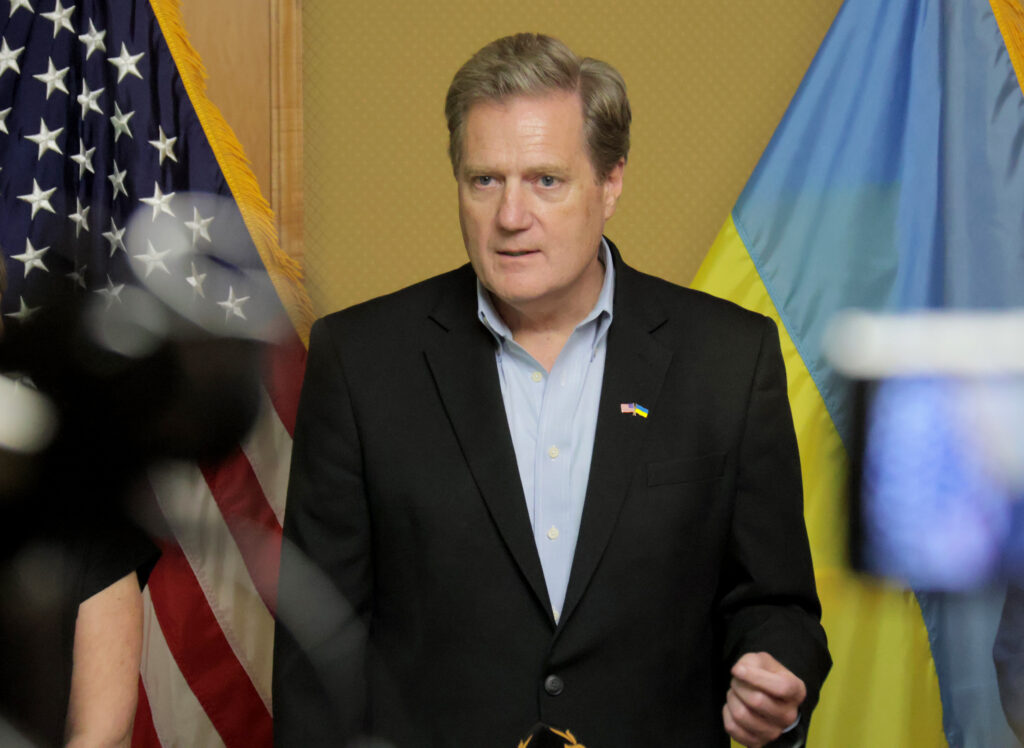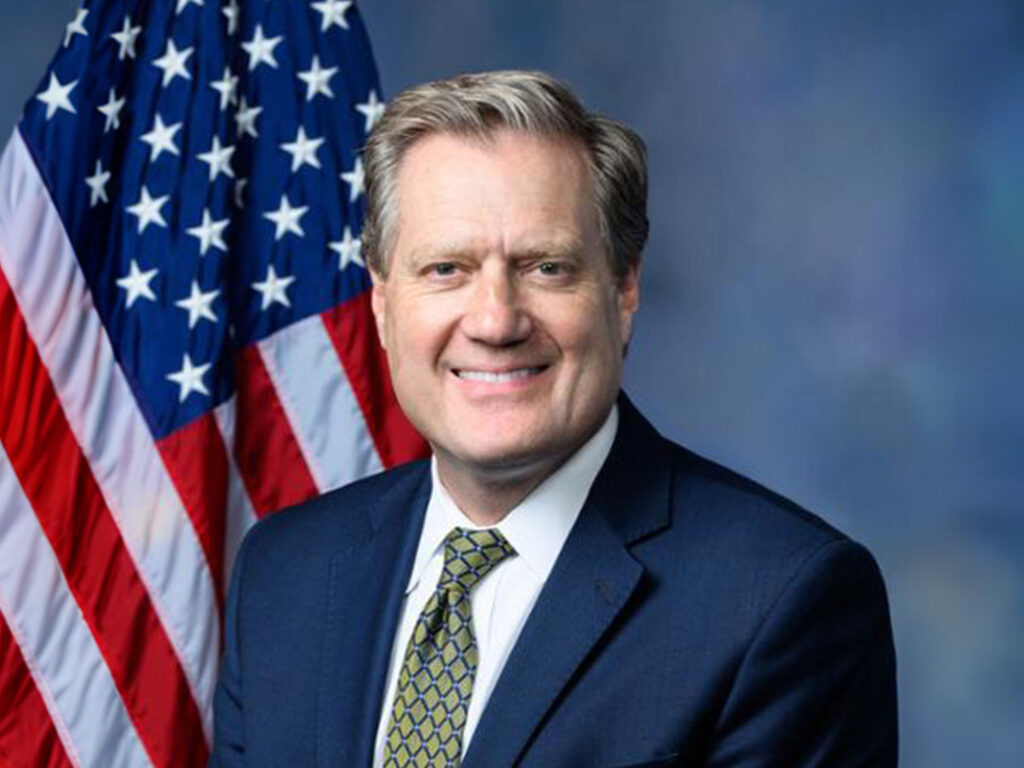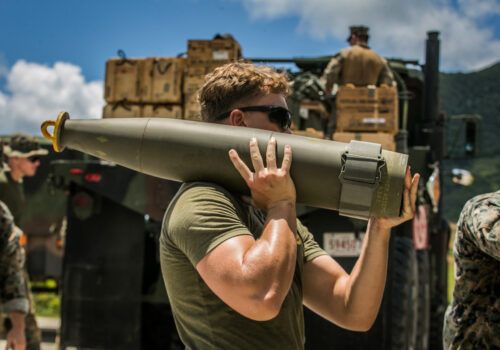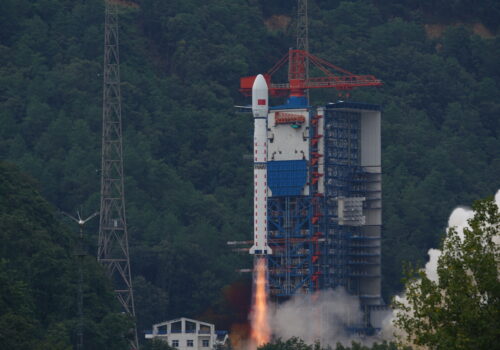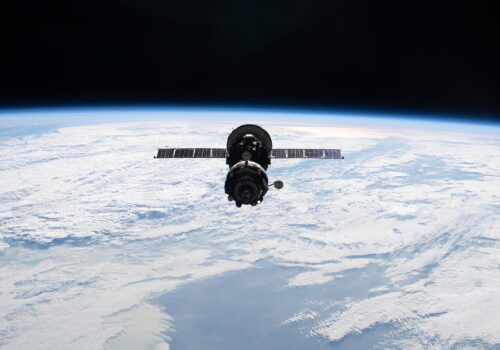The next presidential administration is going to have to “step up to the plate” in terms of leadership to “change the direction” of the wars in Ukraine and the Middle East, said US Congressman Mike Turner at an Atlantic Council Front Page event on Wednesday.
Turner, an Ohio Republican who is chair of the House Permanent Select Committee on Intelligence, added that the next president must ensure that US adversaries “see a United States that is going to step up and say, ‘We’re going to not only de-escalate but resolve these conflicts in favor of the United States.’”
He also addressed the recent movement of thousands of North Korean troops into Russia to fight Ukraine, which Turner said should be considered a “red line” for Ukraine’s Western partners. “The United States and NATO allies should seriously discuss and consider attacking directly North Korean troops that are in Ukraine and that are attacking Ukraine,” he said. “I’m not saying that it should be a decision that is finalized,” he added, but he said that NATO leaders should “have the discussion.”
Below are more highlights from this discussion on the US election and the national security threats the next administration will face, which was moderated by Atlantic Council President and CEO Frederick Kempe.
An emerging axis
- Turner said that “China is the most significant threat” that the United States faces, but he added that the “most immediate threat” to US interests is the “emerging axis of evil,” referring to increasing defense and economic cooperation among Russia, China, Iran, and North Korea.
- The next administration, Turner said, must understand that this enhanced defense cooperation “is a direct threat” to the United States and the West. “These are not small territorial skirmishes. They’re not regional conflicts. This is a much broader conflict,” he said.
- Meeting this threat, he said, will require significant investments in the “deferred maintenance and modernization that needs to happen to the United States’ military systems so that we can have parity with our great power competitors.”
Nuclear threats
- Comparing the US nuclear arsenal to an antique car, Turner said the United States needed to modernize its nuclear weapons capabilities. Since Russia’s and China’s nuclear weapons are newer, Turner argued, they “don’t look at us as having the same level of deterrence that they do.”
- Turner highlighted the threat that would be posed if Russia were to put an anti-satellite nuclear weapon in space, as US intelligence that Turner made public in February indicates Moscow has made advances toward. Comparing the prospect to a “Cuban missile crisis in space,” he said that if Russia were to detonate such a weapon, “all low-Earth orbit satellites would be decimated,” and financial, communications, and military infrastructure relying on space “would be wiped out.”
- As Israel has dealt severe blows to the Iranian-backed Hezbollah and Hamas, there is “an opportunity to impact Iran’s march to becoming a nuclear weapon state.” With Tehran’s proxies diminished, Turner said, “the focus becomes directly on Iran itself.”
The way forward in Ukraine
- Turner argued that more robust support for Kyiv, such as allowing Ukrainian forces to strike deeper inside Russia with US and Western weapons, would lead to greater congressional support for more Ukraine aid. “People want a plan to win,” he said. “If there is viable support and strong support” for Ukraine from the next administration, he added, “I think you’ll see stronger support in Congress.”
- On a potential peace agreement between Ukraine and Russia, Turner said that whatever the outcome of such negotiations, “we need to make certain that Crimea does not become militarized.” If Russia kept Crimea in a peace settlement and militarized it, Turner warned, then along with the exclave of Kaliningrad, Russia will have “reconstituted the reach of the former Soviet Union through the Warsaw Pact countries by merely owning two pieces of real estate.”
Daniel Hojnacki is an assistant editor on the editorial team at the Atlantic Council.
Watch the full event
Further reading
Mon, Oct 28, 2024
The US needs a stronger defense industrial base. Option contracts can help.
New Atlanticist By Michael Hogan
The US government would pay a premium on current orders, but it would then have the option to purchase a larger amount within a fixed timeframe.
Mon, Oct 28, 2024
How the US can counter Russian and Chinese nuclear threats in space
New Atlanticist By
As China and Russia bolster their counterspace capabilities, the United States must modernize its space-based nuclear command.
Thu, Feb 15, 2024
Experts react: What to know about Russia’s apparent plans for a space-based nuclear weapon
Experts react By
Reports that Russia is developing a space-based nuclear anti-satellite weapon have raised national security concerns in Washington.
Image: KYIV, UKRAINE - JULY 1, 2024 - Chairman of the House Permanent Select Committee on Intelligence Mike Turner is pictured during a briefing held as part of the visit of the bipartisan delegation from the US House of Representatives, Kyiv, capital of Ukraine. (Photo by Ukrinform/Sipa US.
